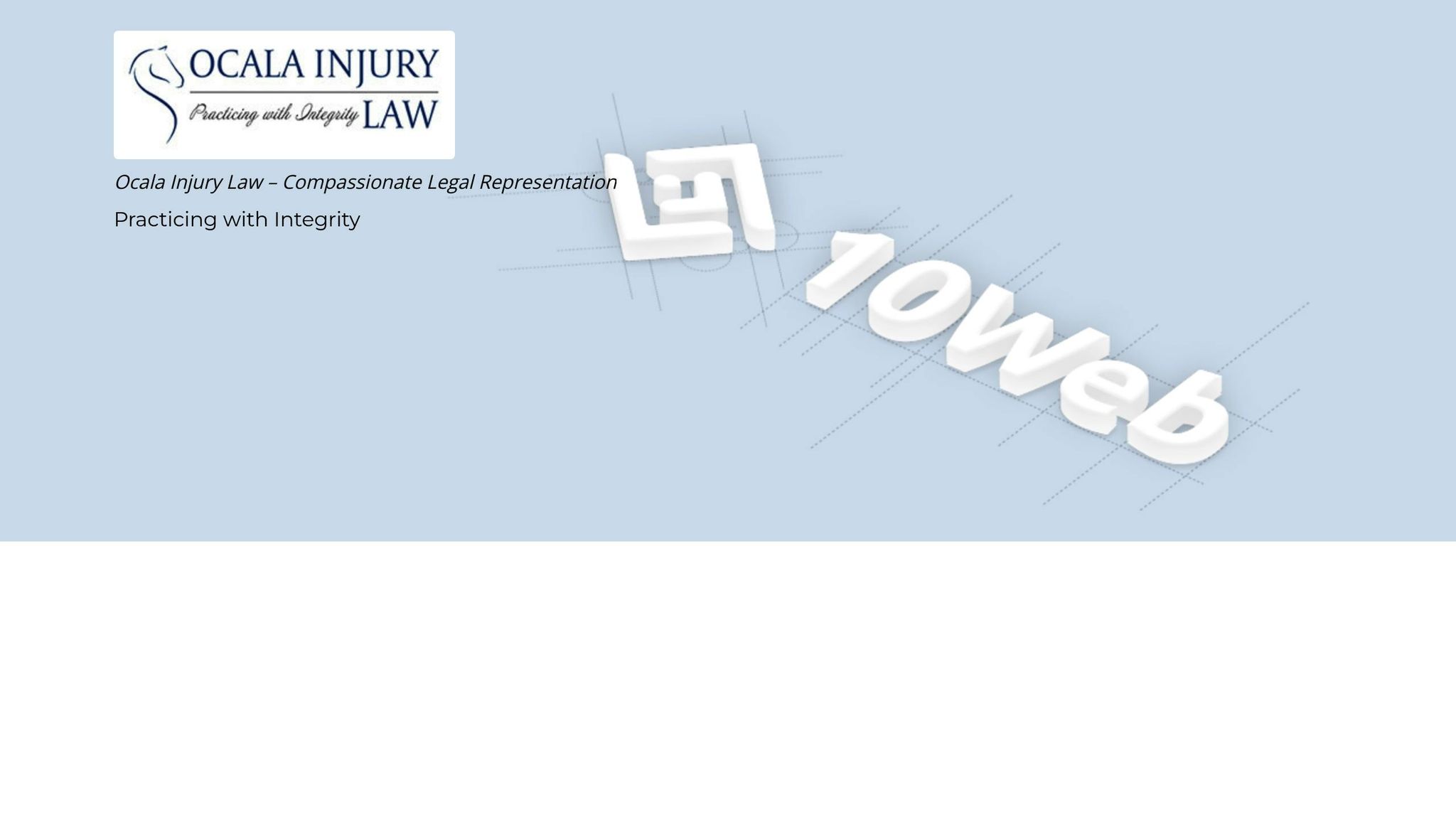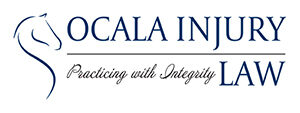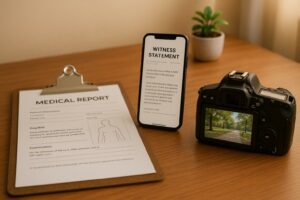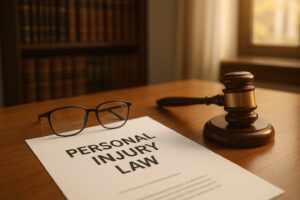Medical experts are essential in personal injury cases, helping to clarify complex medical issues and connect injuries to accidents. They analyze medical records, assess injury impacts, and testify in court to ensure fair compensation. Here’s how they contribute:
- Analyze Medical Records: Review treatment history, diagnostic tests, and injury patterns.
- Assess Injury Impact: Evaluate daily life effects, future medical costs, and rehabilitation needs.
- Provide Court Testimony: Simplify medical terms for judges and juries, using visuals and clear explanations.
- Support Legal Arguments: Offer evidence-based opinions to strengthen claims.
Choosing the right expert with relevant experience, clear communication skills, and courtroom familiarity is key to building a strong case. Early involvement and thorough preparation ensure their testimony is impactful and credible.
Medical Experts in Personal Injury Law
This section has been intentionally removed to improve the article’s flow and eliminate redundancy. The content now transitions directly from the introduction to the "What Makes a Medical Expert" subsection.
How Medical Experts Help Build Cases
Medical experts play a crucial role in connecting clinical details with legal arguments, turning medical evidence into strong support for injury claims.
Medical Record Analysis
Using their expertise, medical professionals carefully review treatment records, diagnostic images, and lab results. They examine injury patterns to confirm how the accident caused the injuries and document the medical care provided. This process also helps identify any pre-existing conditions that might influence the case, ensuring a clear connection between the incident and the resulting harm.
Demonstrating Injury Impact
These experts evaluate how injuries affect a person’s daily life, ability to work, and overall well-being. They estimate future medical expenses, including treatments, medications, and rehabilitation, and assess functional limitations based on established medical benchmarks. This analysis helps determine appropriate compensation for both immediate and long-term damages.
Once their findings are complete, medical experts are ready to present their conclusions under oath.
Medical Expert Court Testimony
Medical experts play a critical role in court by providing analysis and testimony in two key settings.
Testimony Methods
Medical experts share their findings primarily through depositions and courtroom appearances.
- Depositions: These take place in a law office, where experts give sworn statements. Attorneys use this opportunity to review the expert’s analysis and confirm their reliability before the trial begins.
- Courtroom Appearances: Here, experts present their findings directly to judges and juries. They discuss their qualifications, explain their methods, and share conclusions about the case. Experts also face cross-examination, where they must remain composed and defend their analysis.
When testifying, experts typically follow this structure:
- Establish their credentials and expertise.
- Explain their medical findings and analysis.
- Link the injuries to the incident in question.
- Discuss treatment plans and potential recovery outcomes.
- Respond to questions from attorneys on both sides.
Making Medical Terms Clear
Medical experts simplify complex terms so judges and juries can fully understand the case. They use relatable language, analogies, and visuals to break down technical concepts. For example, instead of saying "cervical spine trauma", they might describe it as a "neck injury involving bones and soft tissues near the spinal cord." To explain MRI scans, they compare the layered images to slices of bread.
Experts often use tools like:
- Anatomical models to show injury locations.
- Medical illustrations to demonstrate how injuries develop over time.
- Comparisons of normal versus damaged tissue functions.
- Simple explanations of medical procedures.
- Real-life examples to connect medical findings to daily challenges.
sbb-itb-68ed374
Medical Expert Benefits and Limitations
After discussing methods for expert testimony, let’s dive into their advantages and potential challenges.
Key Benefits and Limitations
When considering a medical expert, it’s important to balance their advantages with the challenges they may bring.
Benefits:
- Professional analysis: Offers strong support for cases with detailed medical insights.
- Scientific clarity: Helps establish causation using evidence-based findings.
- Treatment validation: Confirms the necessity of procedures and associated costs.
- Future needs assessment: Evaluates long-term medical requirements.
- Expense projections: Provides estimates for ongoing and future medical expenses.
Limitations:
- High costs: Expert services can be expensive.
- Availability issues: Scheduling may be difficult with busy medical professionals.
- Cross-examination risks: Experts must be prepared for intense questioning.
- Time investment: Requires thorough preparation and review of case details.
- Narrow focus: Expertise is often limited to specific medical areas.
Legal teams should carefully consider these factors before involving an expert. The effectiveness of testimony often relies on several key elements:
- Matching expertise: Ensure the expert’s specialty aligns with the injury or condition in question.
- Comprehensive records: Provide complete and accurate documentation for review.
- Clear communication: Choose someone who can explain findings in an understandable way.
- Evidence-based opinions: Ensure the expert remains impartial and bases conclusions solely on facts.
- Early involvement: Engage experts as soon as possible to allow sufficient preparation time.
Working with Medical Experts
After evaluating the strengths and weaknesses of various experts, focus on selecting the right specialist for your case.
Selecting the Right Expert
Pick an expert whose certifications, academic background, and clinical experience align with the specifics of your case.
Here’s what to look for:
- Active clinical practice: Ensures the expert is familiar with the latest medical standards and practices.
- Academic appointments: Faculty roles often indicate deeper expertise in their field.
- Peer-reviewed publications: Published research reflects authority and dedication to the subject.
- Courtroom experience: Familiarity with testifying ensures clear and effective communication.
Getting the Best Expert Testimony
To get the most from your expert, provide complete medical records early so they have time for a thorough review.
Steps to ensure effective testimony:
- Start preparations at least three months before the trial.
- Schedule monthly case reviews to stay on track.
- Conduct at least one mock hearing to refine the presentation.
- Develop simple, easy-to-understand visuals to support key points.
How Ocala Injury Law Uses Medical Experts

At Ocala Injury Law, Attorney Alida Darias works closely with medical experts from the very beginning. The firm provides all necessary case documentation upfront and incorporates expert findings into strategies that resonate with judges and juries.
Their approach includes:
- Matching experts to the unique needs of each case and ensuring their findings are clear and understandable.
- Using expert opinions to strengthen settlement talks.
- Seamlessly integrating medical testimony into trial presentations to build a strong, persuasive case.
This structured process helps ensure expert testimony supports clients effectively while maintaining credibility and scientific accuracy.
Conclusion
Medical experts play a crucial role in proving causation and quantifying damages with objective evidence. From analyzing medical records to delivering clear testimony in court, they simplify complex findings into persuasive proof. Choosing the right expert and preparing precise, evidence-based testimony can significantly strengthen both settlement negotiations and trial arguments.
Their role is essential in confirming necessary care, calculating damages, and laying the groundwork for fair compensation.
Here are some key steps to make the most of expert testimony:
- Match the expert’s qualifications to the specifics of your case
- Provide thorough and accurate documentation
- Present findings in clear, visual formats for better understanding
- Incorporate expert insights into your overall legal approach
When used effectively, expert testimony ensures that compensation is based on facts rather than assumptions. With the right preparation and expert selection, medical professionals can provide the evidence courts need to secure better results for injured clients.




